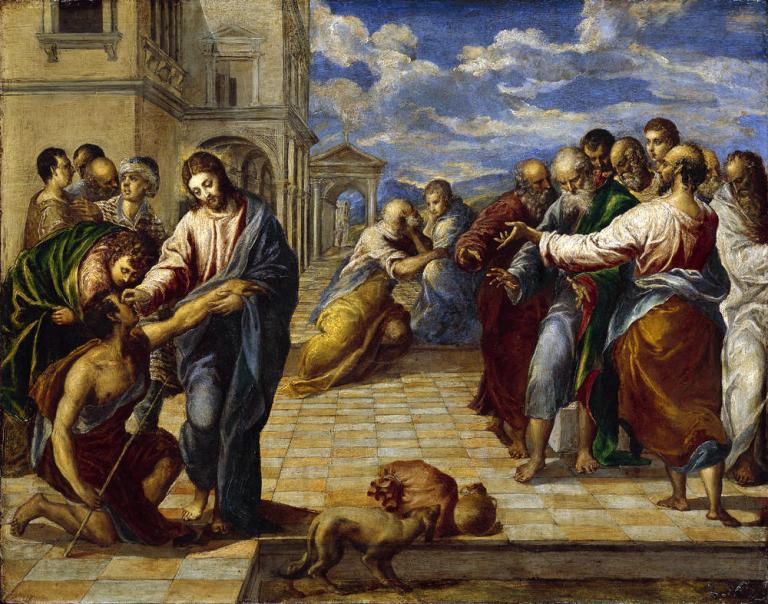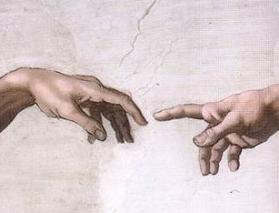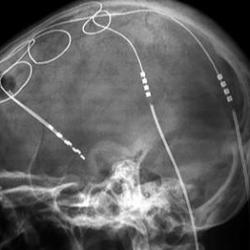
All too often, when there are global disasters, whether an earthquake or terror strike or pandemic as with the Coronavirus, people begin pointing fingers. Instead of pointing fingers, we need to lend a hand, look to God, and point to science.
In the case of the Coronavirus, President Trump has pointed fingers at the Chinese government and people. It has been called a “foreign virus” and “Chinese virus.” They were not the only ones to be on the receiving end of pointed fingers. Newsweek reported that Pastor Rick Wiles went so far as to claim that “the coronavirus is God’s ‘death angel’ on his Monday evening program, blaming parents ‘transgendering little children’ and ‘the filth on our TVs and our movies’ for what he views as divine judgment.”
Sound familiar? Jerry Falwell, Sr. blamed the 9/11 attacks on various groups at odds with his religious convictions:
The abortionists have got to bear some burden for this because God will not be mocked. And when we destroy 40 million little innocent babies, we make God mad. I really believe that the pagans, and the abortionists, and the feminists, and the gays and the lesbians who are actively trying to make that an alternative lifestyle, the A.C.L.U., People for the American Way, all of them who have tried to secularize America, I point the finger in their face and say, “You helped this happen.”
Later Rev. Falwell apologized for his comments.
These various word choices and statements are inexcusable, but they also reflect our human tendency to point the finger and blame someone else for our problems. Fortunately, many Christian leaders have not issued such claims. To his credit, Pastor Robert Jeffress did not make such a rash and harmful judgment. As he shared with one reporter, he planned to preach a sermon on the matter. The title of the sermon that he preached was “Is the Coronavirus a Judgment From God?” Pastor Jeffress “strongly suggested” to the reporter that the answer is “no”: Jeffress claimed that “Many times illness is just a consequence of living in the fallen world.”
A word to the wise: If we spent as much time lending a helping hand as we do pointing fingers, just think how much we could accomplish? Consider the account in John 9 featuring Jesus’ healing of a man born blind. Jesus’ disciples pondered whether the man was born blind because of his sin or that of his parents. Jesus’ response is striking:
As he passed by, he saw a man blind from birth. And his disciples asked him, “Rabbi, who sinned, this man or his parents, that he was born blind?” Jesus answered, “It was not that this man sinned, or his parents, but that the works of God might be displayed in him” (John 9:1-3; ESV).
Perhaps we can learn a thing or two from this passage. While the disciples speculated wrongly about who was at fault for the man’s blindness, Jesus informed them that the cause of his blindness was not sin. Rather, the blindness served as an occasion for God’s wondrous healing of the man to be displayed in his life. Jesus then proceeded to heal the man so that he could see (John 9:6-7).
The point of drawing attention to this passage in John 9 is not to claim that the Coronavirus pandemic occurred so that God could display miraculous wonders, but that not every apparent problem or disability or horrific tragedy results from someone’s sin. But such situations also provide occasions for God and people to work miraculously and heroically. In this passage, Jesus experienced backlash for healing the man, since it was a Sabbath (John 9:14, 16). While Jesus was often persecuted for healing on the Sabbath (See for example John 5:16), that did not keep him from caring for people. Rather than point fingers or worry about people pointing fingers at him, Jesus compassionately cared for those in need.
Rather than looking for who to blame, Jesus looked to God and looked after the well-being of others. We should do the same. Moreover, instead of pointing fingers, we should point to science for assistance in addressing health risks, epidemics, and pandemics. While God works miracles, God also uses science and medicine.
Here we can learn a thing or two from the Protestant Reformer, Martin Luther. The Bubonic Plague swept through Germany and came to Wittenberg where Luther lived in 1527. Luther penned a treatise addressing what to do in response to the plague. Rather than sit back and do nothing (a word of challenge to those who approach the current pandemic coolly rather than with a sense or urgency), thinking that God would deliver them if he wanted, Luther asserted that people should do everything possible to fight against the plague. Luther argued that his fellow citizens should look to God and medicine. They should avoid contamination and contaminating others wherever possible, but also do everything possible to care for those in need of their aid. Rather than flee Wittenberg with his pregnant wife and abandon ship, Luther stayed put for the sake of the community, and encouraged other Christian leaders as well as governing officials to do the same. May the Reformer’s words serve to reform our thinking—to trust God completely, to turn to science, and not turn away from our fellow humans in need of our help. The following is a brief excerpt from Luther’s treatise that bears directly on the need to trust in God and trust in medicine, being wise and cautious to guard against contamination, while also caring for our neighbors:
No, my dear friends, that is no good. Use medicine; take potions which can help you; fumigate house, yard, and street; shun persons and places wherever your neighbor does not need your presence or has recovered, and act like a man who wants to help put out the burning city. What else is the epidemic but a fire which instead of consuming wood and straw devours life and body? You ought to think this way: “Very well, by God’s decree the enemy has sent us poison and deadly offal. Therefore I shall ask God mercifully to protect us. Then I shall fumigate, help purify the air, administer medicine, and take it. I shall avoid places and persons where my presence is not needed in order not to become contaminated and thus perchance infect and pollute others, and so cause their death as a result of my negligence. If God should wish to take me, he will surely find me and I have done what he has expected of me and so I am not responsible for either my own death or the death of others. If my neighbor needs me, however, I shall not avoid place or person but will go freely, as stated above.” See, this is such a God-fearing faith because it is neither brash nor foolhardy and does not tempt God. Martin Luther, “Whether One May Flee from a Deadly Plague,” To the Reverend Doctor Johann Hess, pastor at Breslau, and to his fellow-servants of the gospel of Jesus Christ, in Luther’s Works, vol. 43: Devotional Writings II, ed. Jaroslav Jan Pelikan, Hilton C. Oswald and Helmut T. Lehmann (Philadelphia: Fortress Press, 1999, c1968), pages 131-132.
In the present global crisis involving the Coronavirus, look for holistic rather than one-sided responses. Situations like these are certainly wake-up calls: we should be ever mindful of the brevity and vulnerability of life that should lead all of us to make our peace with God and one another. Similarly, instead of pointing fingers, we should offer aid to others as Jesus did to the man born blind. We need to address the pandemic comprehensively here and across the globe, as we are all in this fight for life together. It’s not a time for pointing fingers but for all helping hands, open hearts and discerning minds to be on deck.
Readers are encouraged to consider what my friends at Science for the Church have to say on this subject. Also consult the Center for Disease Control and the World Health Organization. For a talk and discussion on the subject of this post, watch the video at this link: “Coronavirus: Don’t Point Fingers. Lend a Hand. Give a Heart.”















